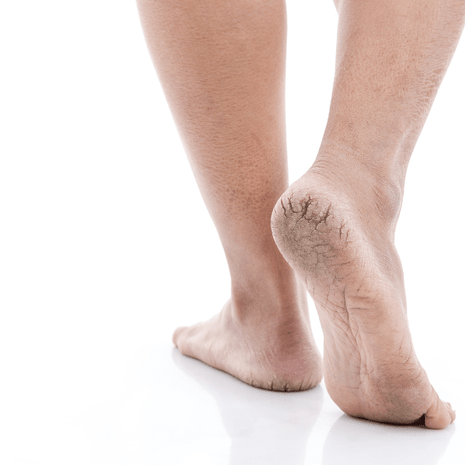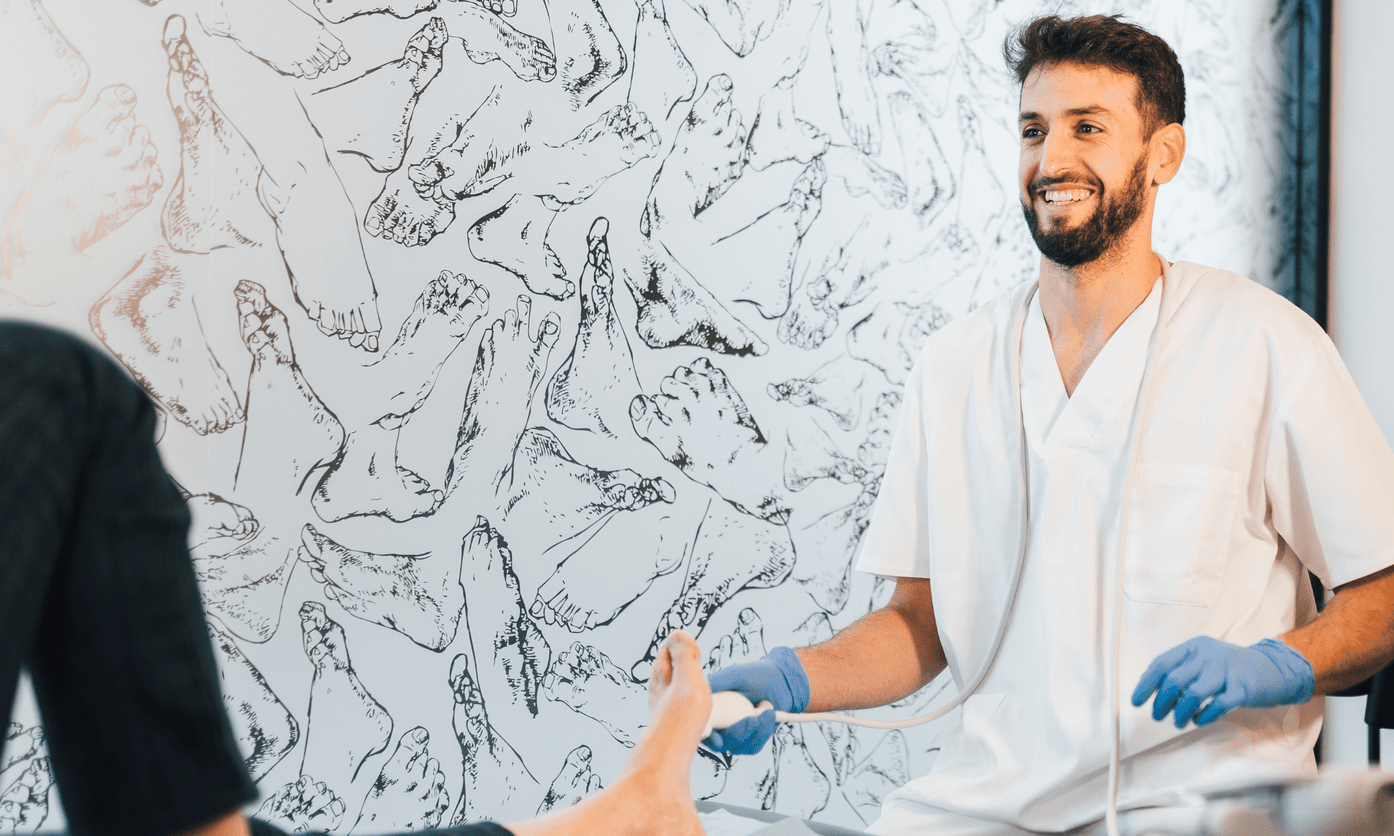Cracked Heels (Heel Fissures) Treatment at Foot Foundation
Heel fissures develop when dry, thick skin loses elasticity and splits under load—painful, sometimes bleeding, and infection-prone in high-risk feet. Open-back shoes and pressure hotspots often keep the cycle going.
At Foot Foundation, we gently remove hard skin, restore hydration with urea-based care, and address pressure with orthotics and supportive footwear. You’ll get quick relief and a simple home plan to keep your heels smooth and resilient.
What are Cracked Heels?
Cracked heels (heel fissures) occur when the skin around the heel becomes dry, thickened, and loses elasticity, eventually splitting under pressure. These cracks may be superficial and unsightly, or deep and painful, sometimes bleeding and predisposing to infection.
Cracked heels are common in adults and may be linked to skin dryness, pressure, or underlying medical conditions. At Foot Foundation, we provide specialist heel care, removing thickened skin and offering long-term solutions to restore comfort and prevent recurrence.
Causes & Risk Factors
Dry skin (xerosis) – often worsened in cold weather or with ageing
Excessive pressure – prolonged standing, walking barefoot, or obesity
Open-heeled footwear – sandals or shoes without heel support increase skin expansion
Callus build-up – thickened skin increases risk of splitting
Medical conditions – diabetes, hypothyroidism, eczema, psoriasis
Poor footwear – hard soles, lack of cushioning, or unsupportive shoes
Biomechanical factors – flat feet or high arches increasing heel load
Treatment at Foot Foundation
Debridement – safe removal of thickened, hard skin by a podiatrist
Moisturising regime – prescription of urea-based creams to restore hydration
Protective padding & dressings – relieving pressure on painful fissures
Custom orthotics – redistribute heel pressure and prevent recurrence
Footwear advice – cushioned, supportive shoes with closed heels
Infection management – treatment or referral if secondary bacterial infection is present
Education – self-care routines for long-term skin health
Symptoms
Dry, hard, or thickened skin on the heels (callus formation)
Cracks or fissures in the skin, which may be painful or bleed
Redness or inflammation around the fissures
Pain when standing or walking, especially barefoot
Infection risk if fissures deepen or occur in patients with diabetes
Cosmetic concerns, particularly in summer months
Diagnosis
At Foot Foundation, diagnosis includes:
Clinical examination – assessing thickness, depth of cracks, and infection risk
Footwear assessment – identifying whether shoes contribute to heel fissures
Medical review – where systemic conditions like diabetes or skin disorders may be involved
Cracked Heels – FAQs
They are caused by dry skin, pressure, open footwear, or systemic conditions such as diabetes or psoriasis.
No. Severe fissures can be painful, bleed, and become infected, especially in people with diabetes.
Yes. Podiatrists can safely remove hard skin, treat fissures, and provide long-term management strategies.
Urea-based creams are most effective, as they both soften and rehydrate thickened skin.
Superficial cracks may improve in 1–2 weeks, but deeper fissures may take several weeks with podiatry care and proper skin management.
Yes. Orthotics redistribute pressure, especially in patients with biomechanical risk factors like flat feet or high arches.
Yes. People with diabetes are more prone to skin dryness and infection, making cracked heels a serious concern requiring professional care.
Yes. Deep fissures can allow bacteria to enter, causing cellulitis or ulceration in high-risk patients.
Yes. Sandals and shoes with open backs increase skin expansion and dryness, worsening fissures.
If cracked heels are painful, recurrent, bleeding, or at risk of infection, podiatry assessment is essential.
Why Choose Foot Foundation?
Foot Foundation provides specialist cracked heel care, combining debridement, skin hydration, orthotics, and footwear advice. Our podiatrists focus on both immediate relief and long-term prevention, especially for high-risk patients such as those with diabetes.
With clinics in Rosedale, Takapuna, Remuera, Botany, Hamilton, and Tauranga, expert skin and heel care is available across New Zealand.




